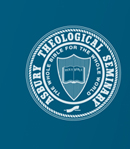Abstract
Early American Methodism inherited a staunch abolitionist position from John Wesley. Bishops Francis Asbury and Thomas Coke strongly opposed slavery. Under their leadership, the early minutes and disciplines included a series of rules that required preachers to free their slaves and ameliorate the effects of slavery. They also waged an ongoing “war” with the various state legislatures that allowed slavery. After a strong backlash threatened Methodism’s ability to minister to slaves, enter plantations, and work in the South, the church prioritized the evangelistic mandate over the cultural mandate. The compromise mitigated social hostility and allowed Methodism to become the largest church in the South by 1800. Sadly, the compromise tainted the church, enabled slavery, and created a legacy of racism.
DOI
10.7252/Journal.01.2024S.02
Recommended Citation
Payne, William
(2024)
"A Deal with the Devil: Pragmatic Mission and Early American Methodism’s Complicity with Slavery,"
The Asbury Journal:
Vol. 79:
No.
1, p. 9-28.
Available at:
https://place.asburyseminary.edu/asburyjournal/vol79/iss1/3
Included in
Biblical Studies Commons, Christian Denominations and Sects Commons, Missions and World Christianity Commons

